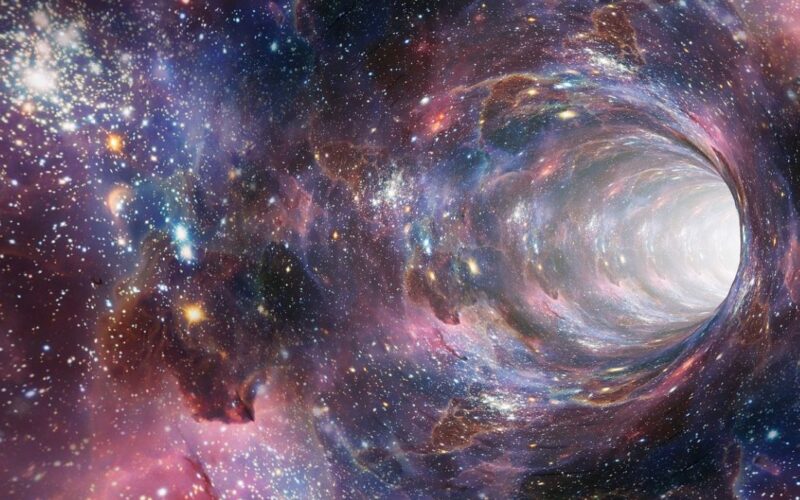In the vast expanse of the cosmos, black holes stand as cosmic wonders, defying the laws of physics and challenging our understanding of the universe. These enigmatic entities, characterized by their immense gravitational pull, have captured the imaginations of scientists and stargazers alike. As we journey through the cosmos, let’s delve into the fascinating realm of black holes, where the rules of space and time are rewritten.
Formation from Stellar Collapse
Black holes emerge from the aftermath of massive star collapses. When a massive star exhausts its nuclear fuel, gravitational forces cause a catastrophic collapse, leading to the formation of a singularity—a point of infinite density—surrounded by an event horizon, beyond which nothing can escape.
Sizes and Types
Black holes come in various sizes, from stellar-mass black holes, several times the mass of our sun, to supermassive black holes, found at the centers of galaxies and containing millions or even billions of solar masses. Intermediate-mass black holes, with masses between the two extremes, also exist, though they are less commonly observed.
Gravity’s Grip
The gravitational pull of a black hole is so intense that not even light can escape its clutches. This phenomenon gives rise to the term “black hole” as they appear invisible against the backdrop of space. The boundary marking the point of no return is known as the event horizon.
Time Dilation and Warped Spacetime
Close proximity to a black hole results in significant time dilation, where time passes more slowly for an observer near the event horizon compared to a distant observer. This effect is a consequence of the warped spacetime around the black hole, as predicted by Einstein’s theory of general relativity.
Hawking Radiation
Stephen Hawking proposed that black holes are not entirely black; they emit a faint radiation now known as Hawking radiation. This theoretical prediction suggests that black holes slowly lose mass over time and could eventually evaporate, challenging previous notions of black holes as eternal cosmic vacuum cleaners.
Interstellar Impact
Black holes play a crucial role in shaping galaxies and the cosmos. Their gravitational influence influences the motion of nearby stars and can lead to the formation of accretion disks, where surrounding matter spirals into the black hole, releasing immense energy.
Spaghettification
Approaching a black hole leads to a phenomenon called spaghettification, where tidal forces exerted by the intense gravity stretch and elongate objects, including stars and even spacecraft, into long, thin shapes resembling spaghetti.
Wormholes and Hypothetical Travel
Theoretical physics suggests that black holes might be connected by wormholes, hypothetical shortcuts through spacetime. While intriguing, the existence and stability of wormholes remain purely speculative.
Unsolved Mysteries
Despite significant advancements in astrophysics, black holes continue to pose intriguing questions. The nature of singularities, the information paradox, and the true essence of the interior beyond the event horizon remain open avenues for exploration and discovery.
Collaborative Observations
Observatories worldwide, including space-based telescopes like the Hubble and ground-based facilities, collaborate to study black holes. These observations provide valuable insights into their behavior, evolution, and the cosmic phenomena associated with these mysterious entities.
As we conclude our journey through the cosmic abyss, the mysteries of black holes persist, inviting scientists and enthusiasts to peer deeper into the cosmos and unlock the secrets these celestial marvels hold. From warping spacetime to challenging our understanding of fundamental physics, black holes continue to captivate and inspire, reminding us that the universe is an ever-unfolding tapestry of awe-inspiring wonders.










